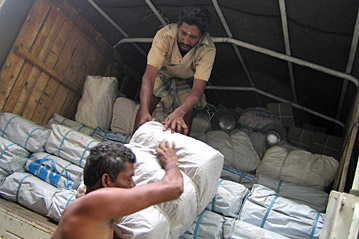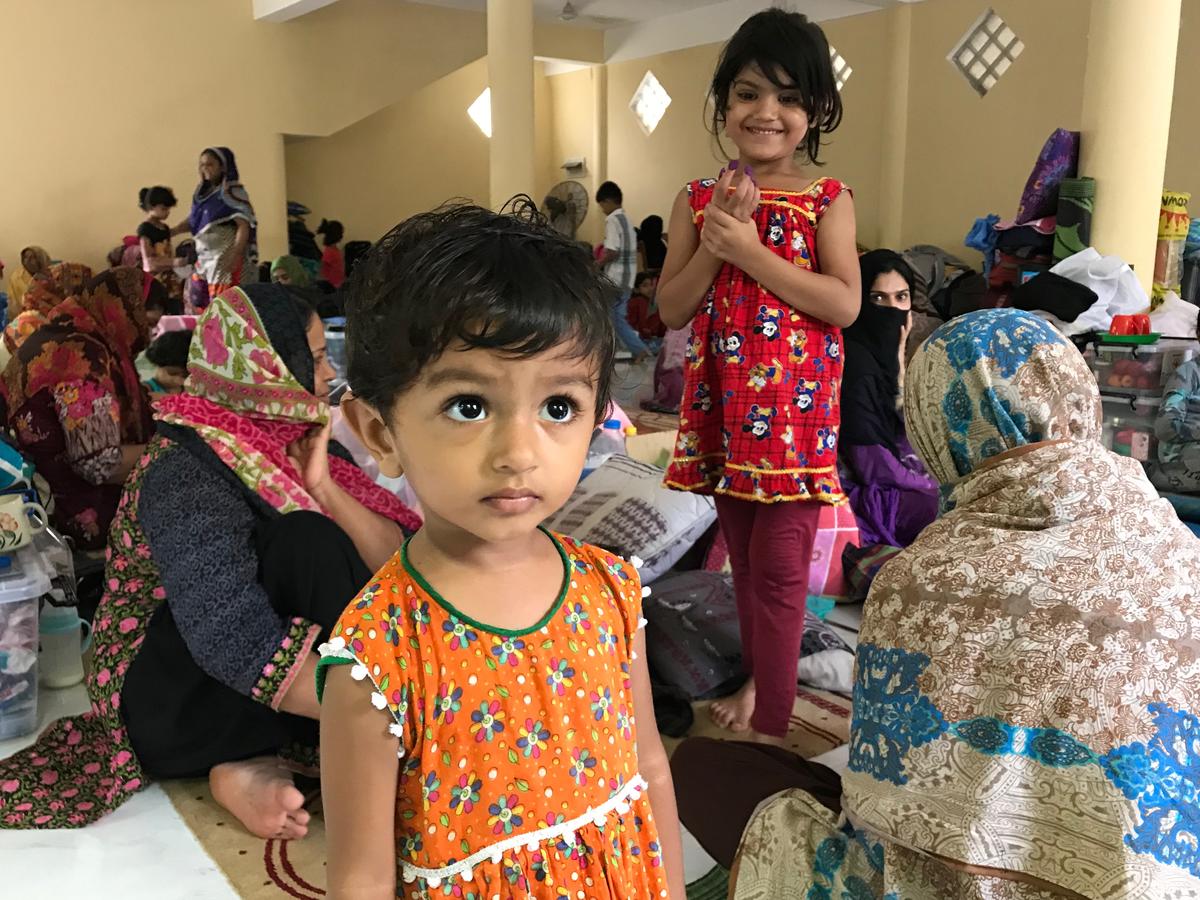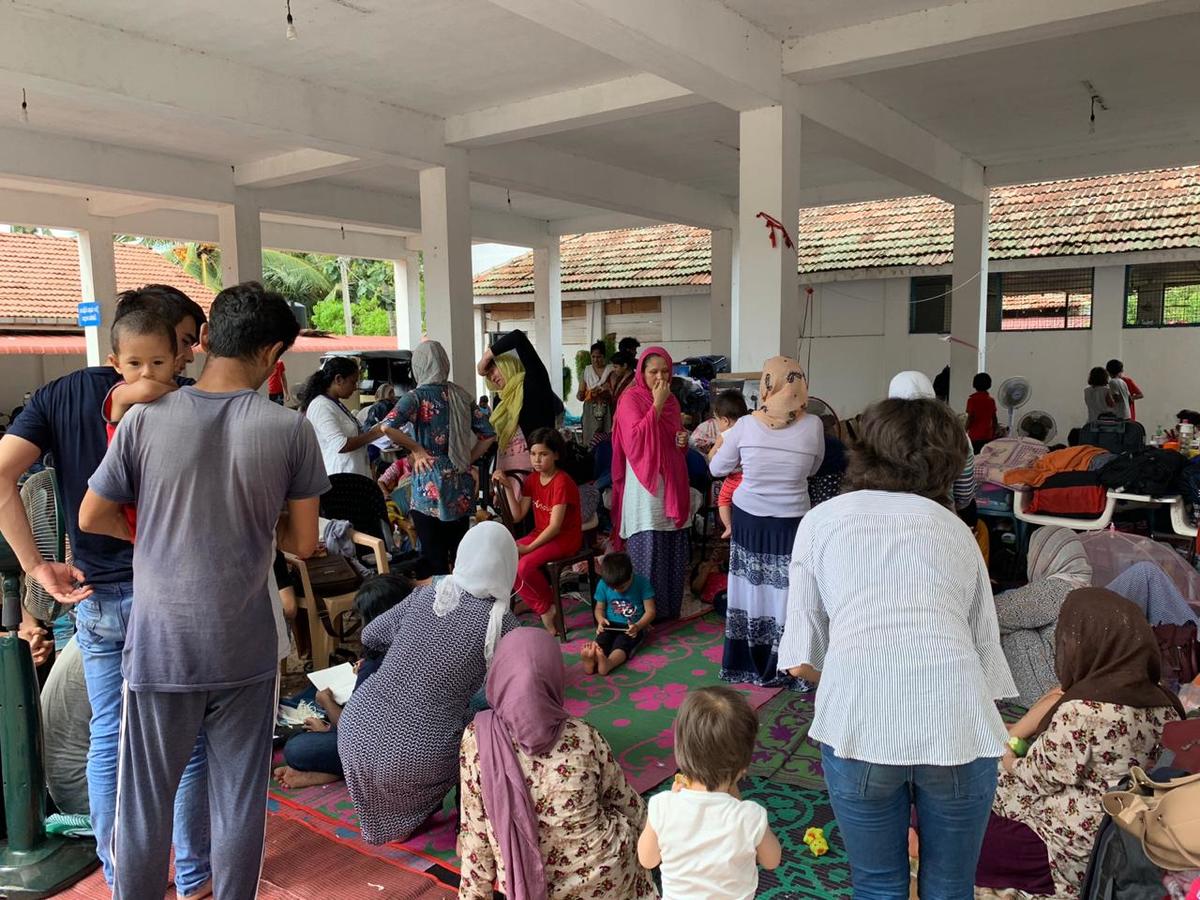First relief convoy in a month for displaced in rebel-held eastern Sri Lanka
First relief convoy in a month for displaced in rebel-held eastern Sri Lanka

VAHARAI, Sri Lanka, November 30 (UNHCR) - The first humanitarian convoy to the rebel-controlled town of Vaharai since October has reached the area and delivered 1,000 UNHCR tents and other relief items for displaced families.
The convoy, carrying food, water, fuel, tents, hygiene kits and medicine, arrived in Vaharai in eastern Sri Lanka's Batticaloa district on Wednesday after the government and rebel Liberation Tigers of Tamil Eelam (LTTE) guaranteed its security. The relief run was organised by the government with help from groups such as the United Nations and the International Committee of the Red Cross.
"We managed to physically hand over 560 tents to families at one site, Kandalady, and gave the remaining tents to local authorities to distribute in Kandalady and Vaharai," said Yoko Akasaka, head of the UNHCR field office in Batticaloa town.
"More than 31,000 people are registered as displaced within LTTE-controlled Vaharai and many are women, children and the elderly. Their condition is clearly critical," noted Akasaka, who accompanied the convoy. "Our main concern at this time is future access and the safety of the population," she added.
Vaharai is part of a coastal pocket under the control of the LTTE. Many families fled to the Vaharai area when fighting broke out further up the coast four months.
Fighting flared in Vaharai itself at the end of October and humanitarian agencies, including UNHCR, have since been unable to reach the area with essential goods such as food, water and medicine. Restrictions on movement compound the suffering of vulnerable displaced families caught in the conflict.
Many people tried to flee the area after a November 8 attack on a school left at least 50 people dead, according to news reports. About 60 people are arriving daily in government-controlled Valaichchenai, to the south, where UNHCR has distributed 500 tents for immediate shelter.
"Sites in the area are becoming more and more overcrowded, so UNHCR and its partners are actively seeking out locations for possible new sites," Akasaka said.
Since the security situation across the north and east of Sri Lanka worsened in April, UNHCR has delivered more than 1,100 tonnes of relief supplies to newly displaced families, including 20,000 tarpaulins to build emergency shelters.
UNHCR is also working with other UN agencies and partner organisations to provide locally available shelter materials, such as palm thatch and timber, to displaced families living with host families, and to set up new emergency sites for people currently living in markets, schools and other communal buildings.
This is part of UNHCR's wider operation, including protection monitoring and interventions, to protect and assist some 211,000 persons who are currently registered as displaced as a result of the escalation in fighting this year.
By Clare Graham in Vaharai, Sri Lanka




